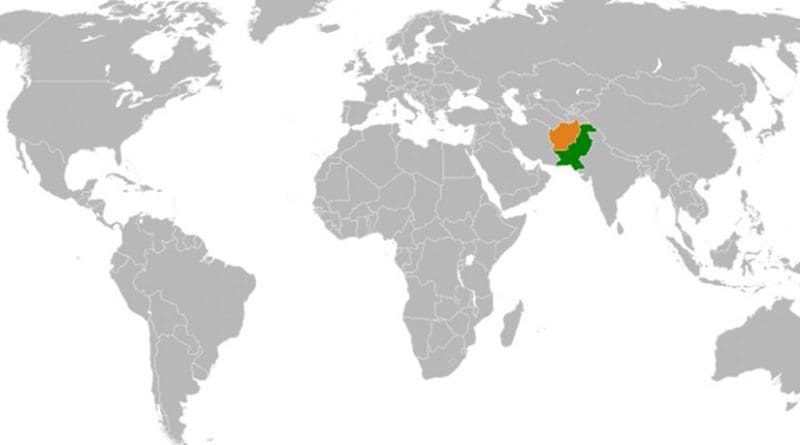Blame Game And Pak-Afghan Relations – OpEd
Pakistan-Afghanistan relations have dependably observed good and bad times for different reasons. Although, there have remained several expressions of friendly relations with the leadership of both the countries from time to time. The mistrust and blame game towards each other could never help bring the two countries on the same page with regard to various challenges that the two countries are faced with. As the two are important regional countries and both nations have stayed suspicious of each other. Both keep on remaining to experience some miscommunication, which will additionally hurt their long haul of security and economic interests. Let’s see what happened in Past? And how the present scenario will shape the future discourse and foreign Policy of the two neighbouring countries.
The recent waves of terrorism in Afghanistan and Pakistan have further fanned the blame game. In the previous week, Kabul was attacked badly which killed and wounded dozen of People. Pakistan was once again blamed for the attack which asserted 150 lives. Numerous experts contend that it was a security lapse on the part of Afghan security agencies. Since attacks carried out in Kabul, Helmand and Kandahar were all in security zones.
When Hamid Karzai assumed charge he was more prone toward India and wanted more role for the latter in Afghanistan due to which he often criticized Pakistan for destabilization in the country. After Karzai, Pakistan and Afghanistan relations saw a subjective change with enhanced respective relations. President Ashraf Ghani demonstrated his eagerness through his activities to work intimately with Pakistan to wipe out menace of terrorism. It was a noteworthy change in Afghan outside arrangement, which agitates Northern Alliance and frightened India.
Despite the fact that ISIS has claimed responsibility for various attacks but Afghanistan’s administration has constantly censured Pakistan for the turmoil, insurrection, supporting fear mongering, and so on and so forth in Afghanistan. Pakistan’s repeated assurance that cooperation in regional security issues is in the common interest of both and that they should work together to address the challenges, unfortunately, could not change Afghanistan’s stance. As a result, the Afghan Taliban and the TTP have continued to take full advantage of such increasing mistrust between Pakistan and Afghanistan by organizing deadly terrorist attacks on both sides of the porous border.
The fundamental distinction between the two militant groups in Pakistan and Afghanistan are quite clear. The TTP and its partners have been totally removed from Pakistan, and they now direct operations against Pakistan from Afghan soil. The Afghan Taliban on the other hand, may have some of its leader in Pakistan, but the rank and file of the organization is in Afghanistan and seems to be in the ascendance in its war against the Afghan national army and the rump US troops. The Afghan government has made it clear that it would not make any move against anti-Pakistan militant group, unless Pakistan made a move against the Haqqani Network. Pakistan does not want to widen the conflict by taking action against the Haqqani’s. Pakistan understand that the best way to peace in Afghanistan would be through peace negotiations.
Another wellspring of uncertainty and blame game between the two nations in the dominating part that India has begun playing in Afghanistan. Besides investing 2 billion in Infrastructure development, India has additionally grown extremely solid defense ties with Afghanistan, to Pakistan’s consternation. Pakistan feels that its nightmare of dealing with both its threatening Eastern and Western fronts in the meantime has come to be figured it out. To handle this danger and to support its wagers against cross-border terrorism, Pakistan has briefly shut its outskirt with Afghanistan at Torkham, Chaman and Ghulam Khan. Pakistan has also shelled militant camps across the border with artillery. In this regard, Pakistan efforts for stable Afghanistan are praise-worthy. It is also needs of time that Afghanistan should think out of the box and step ahead to create an environment of mutual trust and without their consensus it is would be difficult to achieve peace and prosperity in the region.
Pakistan and Afghanistan need to leave the Prisoner’s Dilemma as their future and destiny is connected. A precarious Afghanistan directly affects stability in Pakistan. It is important to say that the improvement of their trust that can best be accomplished through successive communication which is key for local peace and security. Both need to understand that to accomplish their destinations they need to trade off and collaborate on different issues. It is a fact that cooperation has better pay-offs. In order to come out of this dilemma, transparent and consistent policies need to be adopted. Pakistan understands that so as to secure its western outskirt and to secure exchange courses to CARs for the interest for oil and gas, it needs to work intimately with Afghanistan; while Afghanistan being landlocked will profit by steady and genuine association with Pakistan and can be free from Indian influence. In such manner, significant forces like the United States, China and Russia can play an important role to break the Prisoner’s Dilemma between the two and encourage and urge them to collaborate and cooperate for their economical political and territorial steadiness.
In nutshell, the Enemy of Pakistan and Afghanistan is same and in same shape and dress. Now it is a question that whether Afghanistan recognizes its enemy or will it externalize internal problem through blame game and false allegations against Pakistan?
*The writer is a Research Associate at Strategic Vision Institute and he can be reached at [email protected]/[email protected].

